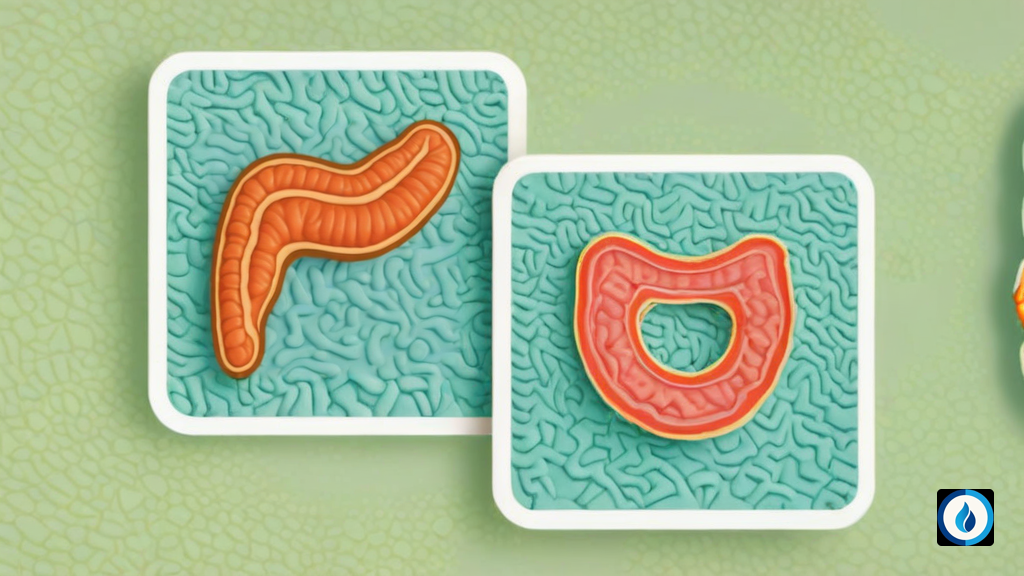Deciphering the Complex Link
While inflammatory bowel diseases (IBD), including ulcerative colitis (UC) and Crohn’s disease, predominantly impact the gastrointestinal tract, recent research has illuminated a perplexing connection between Crohn’s and liver afflictions.
Dr. Benjamin Click, helming the UCHealth Digestive Health Center at the University of Colorado School of Medicine, elucidates this intriguing association, citing potential interplays among liver function, microbiome dynamics, and the pharmacological armamentarium deployed against IBD.
Unveiling Risk Factors for Metabolic Dysfunction–Associated Steatotic Liver Disease (MASLD)
MASLD, characterized by abnormal fat deposition in the liver sans alcohol involvement, emerges as a grave concern for IBD patients. Formerly dubbed non-alcoholic fatty liver disease, MASLD intertwines with metabolic precursors like abdominal adiposity, insulin dysregulation, and hypertension.
Contrary to prior assumptions, obesity alone doesn’t emerge as the primary catalyst for MASLD in the IBD cohort. Instead, factors like small bowel surgery, disease duration and severity, parenteral nutrition, and aggressive corticosteroid usage wield greater influence, as discerned from a review in the World Journal of Hepatology.
Noteworthy Liver Complications Amidst IBD
Beyond fatty liver pathology, a spectrum of hepatic complexities besets individuals grappling with IBD.
The Crohn’s & Colitis Foundation underscores prevalent complications such as autoimmune hepatitis, gallstone formation, and primary sclerosing cholangitis (PSC), a condition typified by bile duct inflammation and fibrosis.
Dr. Bincy Abraham, a distinguished gastroenterologist at Houston Methodist Hospital, underscores the heightened risk of gallstones in Crohn’s patients owing to malabsorption issues in the small intestine.
Mitigating Liver Perils: A Proactive Approach
Given the latent nature of liver pathology, preemptive measures assume paramount importance in the IBD community.
Dr. Click advocates for vigilant risk reduction strategies, emphasizing weight management, dietary vigilance, and consistent physical activity as cornerstones for averting liver maladies.
Monitoring Liver Health: The Imperative of Regular Screening
In light of liver diseases’ surreptitious progression, routine monitoring via liver enzyme assays emerges as a non-negotiable imperative.
Dr. Abraham underscores the significance of annual screenings for Crohn’s patients, urging heightened vigilance in those with familial predispositions or concurrent metabolic disorders.
For individuals harboring augmented liver disease risks, biannual assessments might warrant consideration, fostering early intervention and curbing disease escalation.
Expert Insights and Evidential Validation
This narrative draws from a compendium of authoritative sources, including peer-reviewed publications and institutional guidelines, ensuring the veracity and reliability of the elucidated discourse.
References:
– Gaspar R et al. Liver Manifestations and Complications in Inflammatory Bowel Disease: A Review. World Journal of Hepatology. December 27, 2021.
– How Obesity Affects IBD Management and Patient Outcomes: Q&A With Amanda M Johnson, MD. Mayo Clinic. February 5, 2021.
– Burz S. Fecal Microbiota Transplant From Human to Mice Gives Insights Into the Role of the Gut Microbiota in Non-Alcoholic Fatty Liver Disease (NAFLD). Microorganisms. January 9, 2021.
– Chen L et al. Mendelian Randomization Rules Out Causation Between Inflammatory Bowel Disease and Non-Alcoholic Fatty Liver Disease. Frontiers in Pharmacology. May 10, 2022.
– Fact Sheet Liver Complications. Crohn’s & Colitis Foundation. January 2015.
– Diabetes: How Do I Help Protect My Liver? Mayo Clinic. September 23, 2022.
– Nonalcoholic Fatty Liver Disease. Mayo Clinic. October 6, 2023.
– Lamers C et al. Patient Experiences With the Role of Physical Activity in Inflammatory Bowel Disease: Results From a Survey and Interviews. BMC Gastroenterology. April 14, 2021.
– Neal W et al. Physical Activity in Adults With Crohn’s Disease: A Scoping Review. Crohn’s & Colitis 360. April 2, 2022.
– What Should I Eat? Crohn’s & Colitis Foundation.
– The Skinny on Fats. American Heart Association. February 20, 2024.
